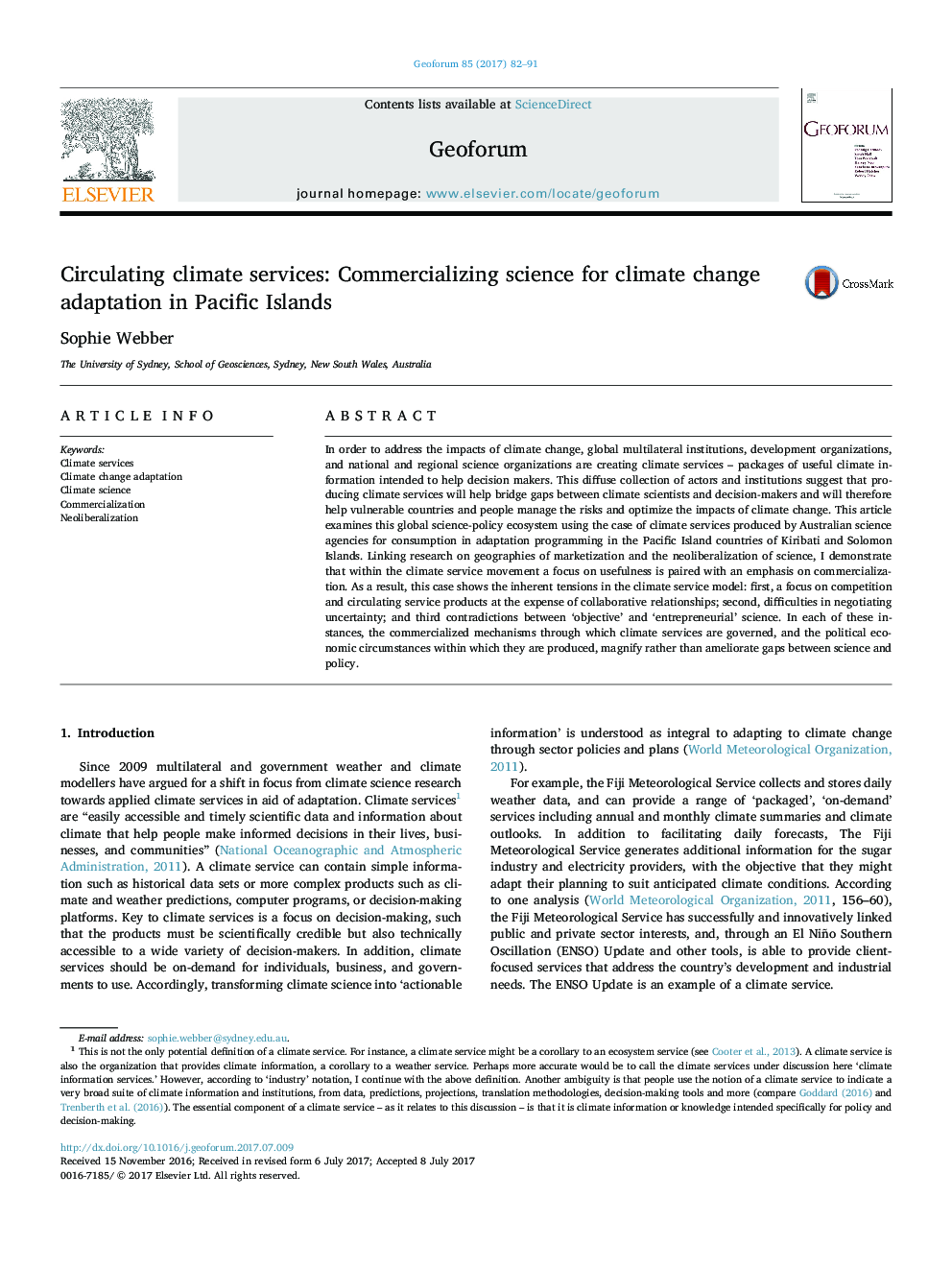| Article ID | Journal | Published Year | Pages | File Type |
|---|---|---|---|---|
| 5073169 | Geoforum | 2017 | 10 Pages |
Abstract
In order to address the impacts of climate change, global multilateral institutions, development organizations, and national and regional science organizations are creating climate services - packages of useful climate information intended to help decision makers. This diffuse collection of actors and institutions suggest that producing climate services will help bridge gaps between climate scientists and decision-makers and will therefore help vulnerable countries and people manage the risks and optimize the impacts of climate change. This article examines this global science-policy ecosystem using the case of climate services produced by Australian science agencies for consumption in adaptation programming in the Pacific Island countries of Kiribati and Solomon Islands. Linking research on geographies of marketization and the neoliberalization of science, I demonstrate that within the climate service movement a focus on usefulness is paired with an emphasis on commercialization. As a result, this case shows the inherent tensions in the climate service model: first, a focus on competition and circulating service products at the expense of collaborative relationships; second, difficulties in negotiating uncertainty; and third contradictions between 'objective' and 'entrepreneurial' science. In each of these instances, the commercialized mechanisms through which climate services are governed, and the political economic circumstances within which they are produced, magnify rather than ameliorate gaps between science and policy.
Related Topics
Social Sciences and Humanities
Economics, Econometrics and Finance
Economics and Econometrics
Authors
Sophie Webber,
